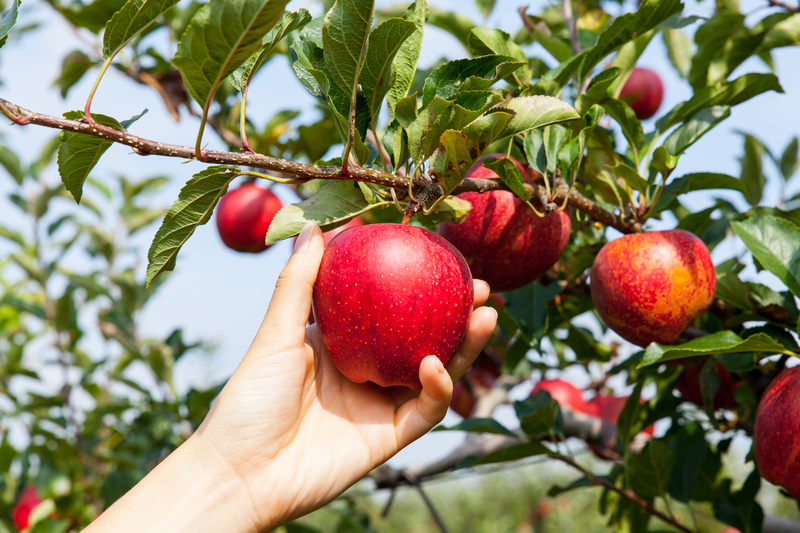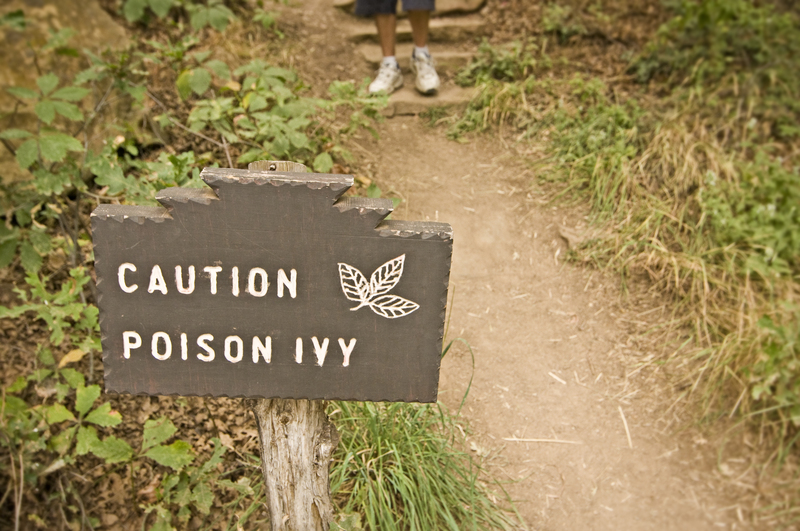Ensuring a Flourishing Garden: The Top Three Tips for Weed Control
Posted on 05/06/2025
Ensuring a Flourishing Garden: The Top Three Tips for Weed Control
If you're passionate about nurturing a flourishing garden, combating weeds is a never-ending battle. Weed control plays a pivotal role in maintaining the health and beauty of your plants. An uncontrolled weed invasion can choke out your precious flowers, vegetables, and herbs, stealing nutrients, water, and sunlight.
This comprehensive guide unveils the top three tips for weed control, offering you expert gardening advice and effective techniques to ensure your garden remains a lush, vibrant sanctuary. Whether you're a beginner or a seasoned green thumb, these proven methods will help you keep weeds at bay for good.
Why Is Weed Control Essential for a Healthy Garden?
Weeds are more than unsightly invaders--they can wreak havoc on your carefully planned landscape. Here's why controlling weeds in your garden is crucial:
- Competition: Weeds vie for essential resources such as nutrients, water, and sunlight, often outpacing young plants and vegetables.
- Disease & Pests: Weeds may harbor pests and fungal diseases, threatening your cultivated plants.
- Aesthetic Impact: Unchecked weeds quickly spoil the visual harmony of your garden beds, paths, and borders.
Mastering the art of effective weed management paves the way for robust plant growth and a truly beautiful outdoor space.

Top Three Tips for Weed Control and Prevention
1. Mulching: Your Garden's Best Ally
One of the most powerful strategies for weed prevention is mulching. Mulch acts as a natural barrier, smothering weed seeds and blocking sunlight needed for their germination.
- Types of Mulch: Organic options like shredded bark, straw, grass clippings, and compost not only suppress weeds, but also enrich the soil. Inorganic alternatives, such as landscape fabric or pebbles, provide long-term weed protection for ornamental beds.
- How to Apply: Spread a 2-4 inch layer of your chosen mulch throughout flower beds and around the base of plants. Be careful not to pile mulch against plant stems as this can foster rot.
- Mulching Benefits:
- Conserves soil moisture
- Improves soil quality as organic mulch breaks down
- Moderates soil temperature
- Gives garden beds a neat, unified appearance
Tip: Check and refresh mulch each season to ensure ongoing weed suppression. Replace areas where mulch has decomposed or thinned out.
2. Smart Planting and Ground Coverage
Crowding out weeds through dense planting is a classic and eco-friendly weed control method. Weeds seldom thrive where sunlight is scarce and established plants dominate the landscape.
- Choose Ground Covers: Integrate low-growing perennials like creeping thyme, vinca minor, or sweet woodruff. These natural carpets shade the soil and leave little room for weed seeds to settle.
- Practice Intensive Planting: Reduce open soil by planting flowers, shrubs, and vegetables close enough for mature leaves to touch without overcrowding. This is especially useful in raised garden beds and vegetable patches.
- Companion Planting: Combine compatible species that support each other's growth while minimizing exposed soil. Interplanting herbs and vegetables like basil with tomatoes can reduce weeds and foster healthier plants.
Well-designed garden beds with minimal space between plants act as a living mulch, drastically decreasing weed success rates.
3. Consistent Garden Maintenance and Manual Removal
Even with the best preventative measures, a few persistent weeds will inevitably crop up. Prompt removal and routine upkeep are key to keeping your garden weed-free.
- Weed Young and Often: Pull weeds as soon as they appear, ideally when soil is moist and roots are easier to extract fully. Target weeds before they set seed to prevent future outbreaks.
- Choose the Right Tools: Equip yourself with a hand fork, hoe, or specialized weeding tool for different scenarios. For deep-rooted offenders like dandelions, use narrow tools that grasp the entire taproot.
- Inspect Regularly: Walk through your garden weekly. Early intervention stops small problems from escalating, helping you stay ahead of weed invasions.
Tip: Dispose of pulled weeds properly--never leave them in your compost if they have seeds or are known to root easily. Discard them in a yard waste bin or burn them, according to your local regulations.
Advanced Weed Management Techniques
Soil Solarization
For stubborn weed populations and problem areas, soil solarization is an effective organic method that uses the sun's energy to exterminate weed seeds in the soil.
- How To: In midsummer, moisten and cover the soil with clear plastic tarps for 4-6 weeks. The heat trapped beneath destroys weed seeds, nematodes, and some soil-borne pathogens.
- Best for: Vegetable gardens and new planting areas with severe weed issues.
Organic Herbicides
If manual and cultural controls aren't enough, natural herbicides can provide targeted weed control in areas away from desirable plants.
- Types: Vinegar-based sprays, weed torches, or commercial organic formulas can kill annual weeds on contact.
- Caution: Even organic solutions can harm garden plants--apply carefully and only to affected areas.
Common Weeds and How to Identify Them
Recognizing weeds early makes control much easier. Here are a few of the most notorious garden invaders:
- Dandelion: Yellow-flowered perennial with deep taproot. Remove the whole root to prevent regrowth.
- Crabgrass: Fast-spreading grassy weed found in lawns. Hand-pull before seed heads form.
- Bindweed: Twining vine that strangles plants. Repeated removal of top growth eventually starves the root system.
- Lamb's Quarters: Fast-growing annual that blooms in cloud-like clusters. Hoe off young plants before flowering.
Proactive Weed Control: Dos & Don'ts
- Do: Inspect new soil, compost, and mulch for weed seeds before adding them to your garden beds.
- Do: Create defined pathways with gravel, pavers, or wood chips to limit weed encroachment.
- Don't: Disturb soil unnecessarily; dormant weed seeds will germinate upon exposure to sunlight.
- Don't: Ignore "weed escapes." Letting a few mature can result in thousands of seeds for the next season.
Balancing Weed Control with Eco-Friendly Gardening
Modern gardeners are increasingly mindful of the environmental impact of their gardening choices. Here are some ways to manage weeds organically and sustainably:
- Avoid chemical herbicides wherever possible--they may harm beneficial insects, soil microbes, and even pets.
- Use organic mulch like leaf litter or locally sourced straw to minimize transportation impacts.
- Encourage biodiversity by mixing flowers, herbs, and vegetables in your garden beds to create a resilient ecosystem where weeds struggle to dominate.
Embrace some level of imperfection; not all weeds are evil. In fact, small populations of certain benign weeds can nourish pollinators and improve soil quality when managed properly.

Summary: Achieve a Beautiful, Weed-Free Garden
Weed management is one of the cornerstone skills for any gardener seeking a thriving, flourishing garden. By deploying the top three tactics--consistent mulching, smart planting, and ongoing garden maintenance--you can dramatically reduce weed problems through natural, sustainable measures.
Remember, vigilance and early intervention are your best weapons for maintaining a weed-free oasis. Pair these foundational methods with targeted advanced techniques, and your journey toward garden perfection will be much smoother.
Ready to tackle weeds head-on? Start implementing these expert-approved strategies today and watch your garden transform into a lush, stunning sanctuary!
Frequently Asked Questions (FAQ) on Weed Control
- What is the most effective method for garden weed control?
A combination of mulching, dense planting, and prompt weeding yields the best results for most home gardens. - Can I use homemade weed killers?
Natural sprays like diluted vinegar can help, but they may not be as selective and could harm desirable plants if not applied carefully. - How often should I weed my garden?
Weekly inspections and immediate removal of new weeds help minimize future infestations and keep your garden in top condition. - What is the best mulch for weed suppression?
Organic mulches such as shredded bark, leaf mold, or straw are both effective and improve soil health over time.
Explore more gardening tips and discover additional resources on advanced weed management for a healthy, luscious, and weed-free garden all year round!
Latest Posts
Necessities for the Cutting-Edge Gardener
Blossom in the garden with these 9 essential insights
Building a Safe Outdoor Adventure Zone for Kids

